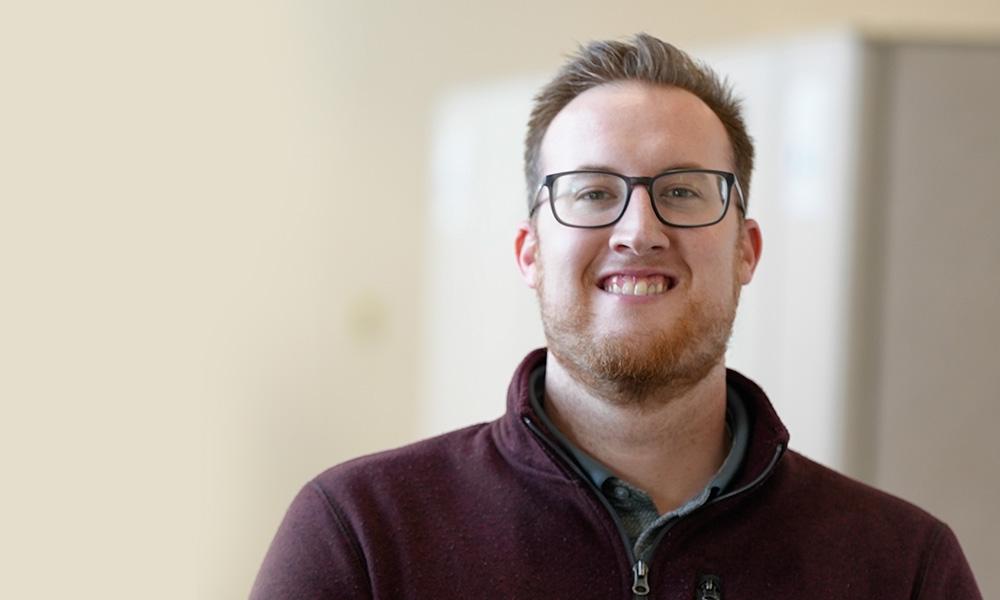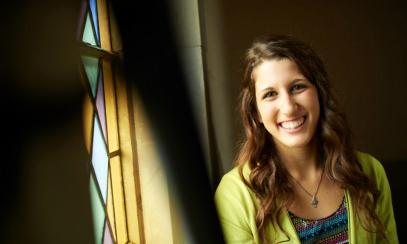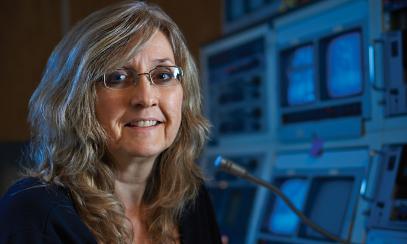
Spotlight on Catholic Young Adults
Drew Isbell, the diocesan director of the Young Adult and Campus Ministry Office, recently sat down with Carlos Briceño to talk about his hopes and dreams for the young adult community in the diocese. Drew was recently appointed to head the office.
Tell me a little bit about yourself.
I’ve been working for the Church professionally for six years, first as campus minister at a high school and three years in parish renewal and the last year-and-a-half as director of evangelization for the diocese. My wife, Amanda, and I have three kids, ages one through six years old. I am originally from Geneva, IL. I had a conversion during a college retreat at Illinois State University. At the age of 21, I had my first holy communion and confirmation.
What are some of the issues facing the YA community in terms of faith?
After the Synod on Young People [in Rome] and the V Encuentro [Fifth Encounter, a four-year effort of ecclesial reflection and action that invites all Catholics in the U.S. to intense missionary activity, consultation, leadership development, and identification of best ministerial practices in the spirit of the New Evangelization], we saw a lot of challenges the young people were confronting. Though there are challenges related to how young people see dogma or Church teachings, the greatest challenge we see is actually how the Church relates to the reality of the lives of young people.
How is the Church accompanying me and walking with me and the real challenges of my life right now? [For instance:] “I am an immigrant in the U.S.” “I am a new parent.” “I am a single mom.” I am all these things, right? How is the Church accompanying me at this stage of my life?
We are in great need of competent mentors to walk with young people in all aspects of their lives, especially during these years of discernment about career paths and life vocation. People who can model accompaniment in the way of Jesus on the road to Emmaus: listening, guiding, inviting, but never imposing. Overall, the challenges of the faith with the pandemic we can see that people are more and more isolated. How do we get people back into that sense of community after being so isolated for such a long time? Though many are looking forward to gathering as community again, others have gotten comfortable in this stage. The effects of the pandemic in our ministry are still developing.
What is your biggest hope and dream in this job?
One of the major initiatives I’ve been tasked is to try to implement, or at least lay the foundation, for a young married couples’ ministry. We had our first listening session with a group of couples recently. I don’t know what exactly that’s going to look like, whether that’s mentor couples or getting together in community. I hope to be able to be accompanying young families as they begin to have children and raise their families and try to keep their faith at the forefront.
I also want to try to [continue] a lot of the great work that Mayra [Price, the former associate director of the office] and Sheila [Stevenson, the former diocesan director of the Office of Young Adult and Campus Ministry] have begun. One of the major things that I’m excited to get involved with is the Samuel Group. That’s a group for young adults, where they hear talks and are in community and where they are discerning their vocations. So being able to accompany them and walk with them as they discern is a huge gift to the diocese and for us as well to be able to walk with them.
How have you tried to apply Bishop Emeritus R. Daniel Conlon’s 2018 pastoral letter on missionary disciples in your office?
We meet with young adult leadership at least four times a year. Every young adult in leadership, or someone who wants to start ministry with young adults, is invited to be part of this. During these meetings in 2019, we went through the pastoral letter Go, He said, as well as Christus vivit, Pope Francis’ 2019 post-synodal apostolic exhortation, written in response to the Synod of Bishops’ 2018 general assembly on young people, faith and vocational discernment.
Something that stood out from that letter is that evangelization starts with the basic pre-set of friendship. Maybe going back to the basics: how do we encounter people in that space of authentic friendship. I go back to the isolation issue. How can we start true friendships and relationships when we are so separated and isolated?
In both of these documents, we are encouraged to dream about new ways to make disciples of the world. Unfortunately, the pandemic put a stop to many of the plans we had, but not our dreams. Our hope for this year is to equip and accompany our leaders as we face the challenges we just mentioned; these documents are certainly guiding this vision.
What have you learned in your journey as a young adult that you hope to pass on to the young adult community?
How foundational a personal relationship with Jesus is in our walks as young adults. There are so many ups and downs during that time: trying to choose a job, vocation, praying about whether or not to get married, or to join the religious life or become a priest.
I spent so much time in Eucharistic adoration, trying to figure out those things in the last 10 years or so. Just a need to have a relationship with the Holy Spirit to be able to listen. The need for good, holy friendships and accountability. That’s been huge for me, especially during this time of pandemic. Continuing to reach out to those friends that walked with me in college and journeyed with in my faith. You need community. We’re trying to be creative to be able to continue that during these times.
What is the biggest lesson you’ve learned during the pandemic?
Ministry cannot look the same way. We’re very programmatic in the Church. There’s a place for programs, but, as we talk about accompaniment and friendship, that requires a lot of time. The biggest lesson for me has been one-on-one friendship. Walking with a specific person takes time, but it’s the most effective.
We learned that we need to equip ourselves for evangelization. Our diocese is blessed with amazing young leaders, and we want to be able to support them in all areas of their ministry and stages of life. Our hope is that our leadership meetings can be a place for growth and community where we equip ourselves for the mission.
One of the big things we’re also trying to do is intentional collaboration with different agencies in our diocese. For example, the Samuel Group is a collaboration with the Vocations Office. We partner with the office for Peace and Justice to host “Justice on Tap” during the summer too. As we move forward to see how we can accompany families, we want to make sure the Family Ministry Office is involved. Youth Formation is helping us see the best ways to connect Youth Ministry and Campus Ministry, and the Hispanic Ministry Office is also helping us see best ways to serve the jovenes Latin@s in our diocese.
Leading by example — we hope that the parishes can see a sense of collaboration. A single body of Christ. That we’re all part of this — how do we help each other to bring more people to Christ, because that is our ultimate goal.
What lessons have you learned from being a part of the diocesan Missionary Discipleship Team?
We need to de-silo. We need to collaborate with different agencies to walk together with our different initiatives. Secondly, that personal relationship with Jesus is so foundational, but we only pass that on when we have personal relationships with others. And so if we can look at ministry that way and say maybe during this time of pandemic it’s harder to have those larger events. But that one-on-one time and spending that time in intentionally developing friendships that are deeper, so that we can go deeper in our faith as well.



